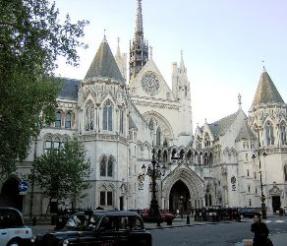Two of the three tribunal judges that will hear the case on public benefit of independent schools were themselves privately educated, but do not think that private schools are the “best thing since sliced bread”, lead judge Mr Justice Warren said today.
Mr Justice Warren and Alison McKenna, president of the charity tribunal, presided over a preliminary hearing this morning to sort out the processes and the scope of the issues to be covered in the full hearing of the Independent Schools Council’s judicial review of the Charity Commission’s guidance on public benefit. The case is due to take place in May and last at least seven days.
The full hearing will be heard in the Upper Tribunal (Tax and Chancery) by Warren and McKenna along with Judge Elizabeth Ovey. At today’s hearing, Mr Justice Warren volunteered the information that of the three judges, two attended private schools while one went to state schools, and of the two judges that have children, their children had a mixture of state and private education. One judge still has children at fee-paying schools but all fees have been paid up-to-date.
Mr Justice Warren said: “I have given very careful consideration to the composition of this panel and I am satisfied that it will be a balanced and independent tribunal.
“You should not assume that those of us who have been to private schools think they are the best thing since sliced bread.”
Rights and wrongs of public schools
He said the judges would be limiting the scope of the case to the issues raised in the judicial review and Attorney-General’s reference, and would not be seeking to make judgements about the rights and wrongs of independent schools. “We are not equipped to examine and determine issues of benefit and disbenefit,” he said.
He used an analogy of sea walls – some people would prefer they weren’t there because they would rather see the ocean, but others insist on them to prevent their homes being flooded. “Who is right?” said Warren. “Likewise religion: if it is right for schools, why not religion, indeed, in the context of faith schools, who is to say whether they are for the public benefit or not?
“These are deeply political and contentious questions and not for the Tribunal to decide.”
Therefore, he said, the scope of the hearing would be limited to the issues raised in the Attorney-General’s reference and the judicial review.
He warned the legal teams representing the parties that this meant “huge rafts” of the evidence they had already submitted were probably irrelevant and inadmissible and he did not think it would be necessary for any of them to present oral evidence.
For instance, he said: “We are concerned that in NCVO’s submission they seem to want us to go into individual assessments of individual schools.”
William Henderson on behalf of the Attorney-General, agreed it was important to keep the scope of the dispute within reason, “otherwise you might think you are being asked to rewrite the textbook of the law on charities”.
Francesca Quint, on behalf of the NCVO, said the only reason that NCVO referred to the assessments was to “illustrate the perception that however correct the Charity Commission has been in its own understanding of the law, that has not necessarily come across to the people to whom the guidance is addressed. There are ambiguities in the published guidance and the assessments.”
Mr Justice Warren concluded by warning the parties not to come to the full hearing and presume it is blindingly obvious that their case is the right one, because the question under consideration was one of utmost importance. He told them to assume for a moment that providing education to 400 fee-paying pupils was not charitable, and that they needed to be able to answer the question of why providing a number of scholarships suddenly makes it charitable.









